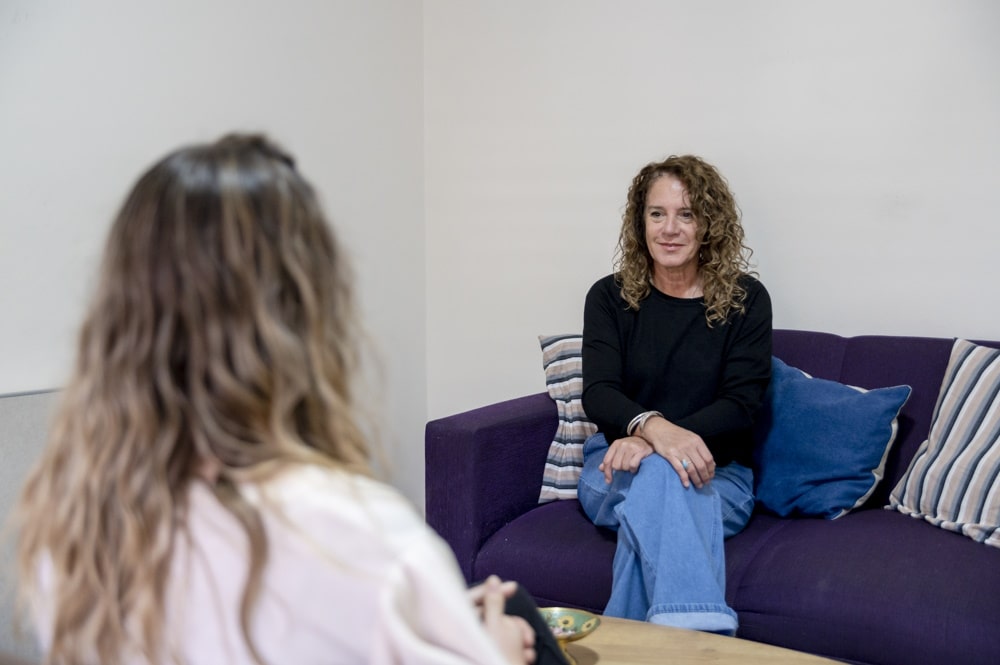My Experience With Private Therapy Sessions
As a psychotherapist, a question I frequently get asked is “how many therapy sessions do I need?”. While this varies from person to person, clients often wonder if their sessions for counselling or psychotherapy must be every week.
In some therapeutic modalities, especially psychodynamic, regular (weekly) sessions are seen as an essential part of the therapeutic process. However, other modalities, and some therapists, hold a flexible stance towards the frequency of sessions.
For me, there have been times in my life when I valued and needed the structure and regularity of weekly sessions, on the same day and at the same time each week.
At another time in my life, I prized the option to see a counsellor on an occasional basis as I felt the need, as it happened this was available through my employment package. More recently, seeing my psychotherapist on a fortnightly basis is working well for my needs and the current therapeutic work.
As a relational integrative counsellor and psychotherapist based in Cardiff, I am committed to working flexibly with my clients. For my private therapy sessions, some clients choose weekly sessions, some fortnightly, others every three weeks, or monthly, and for some, on an occasional basis for a therapeutic ‘check-in’.
I see the value of this flexibility in our work together. In fact, my clients often express their appreciation for the option to access sessions at a frequency which works with their needs, responsibilities, and commitments.
How Often Shall I Schedule My Sessions?
When clients ask me this question I find myself identifying and exploring with them several considerations.
1. Use Your Previous Experience of Counselling or Psychotherapy
If you have had a form of therapy before, you may be able to draw from your experience of what worked for you. Depending on your current therapeutic goals, compared with your previous experience, and other factors below, it is useful to give yourself permission to approach scheduling your sessions with openness to doing things differently.
If this is your first time seeking counselling, or psychotherapy, building momentum in the working alliance, or therapeutic relationship, with your therapist is essential.
Beginning with a few weekly sessions, or at least fortnightly, helps to achieve this for your private therapy sessions. Even when you’ve had previous sessions with a different therapist, paying attention to momentum and growing the therapeutic relationship with an adequate frequency of sessions at the beginning is vital.
2. Find The Sweet Spot of Distance Between Sessions
As the client and therapist grow the working relationship between them, assisted by the momentum provided by the initial sessions, the importance of the amount of time between private therapy sessions becomes clearer.
Clients often become curious about how much time is needed between their therapy sessions to reflect on their experience in the therapeutic process.
Time is also needed to apply in daily life new awareness and resources being discovered during sessions. Having begun with weekly sessions, clients will often explore with me their need to change to fortnightly sessions, to have the time to put things into practice.
With time they expand into sessions every three weeks, or monthly. Sometimes a client will notice that the frequency of sessions needs to be increased for a particular piece of work.
So noticing, being open and curious, and communicating clearly are essential for staying in the sweet spot of session frequency.
3. A Flexible Approach to Complex Life Circumstances
Most clients are navigating complex lives, juggling responsibilities at home, perhaps at work also, and their needs, with difficulties and challenges in their life.
Often the frequency of sessions is determined by the availability a client has in their calendar with their therapist. Financial affordability is a significant consideration.
For a client to prioritise their own mental well-being with the time and financing required can be a significant step towards self-care. Time and money may be the most practical and immediate factors which determine the frequency of sessions.
Also significant, though not always so apparent at first, is the emotional availability of the client. Engaging with counselling or psychotherapy, requires a client having enough inner capacity, or availability of self, to give to the therapeutic process.
Sometimes, out of our control, circumstances change in our lives, demanding more of us, which means we have less to give of ourselves in therapy. This too can be a reason to change the frequency of sessions.
4. Next Steps
When you are exploring which counsellor, or psychotherapist, to approach, be ready to ask questions about session frequency.
Discover all you can about a therapist’s approach towards the frequency of sessions. Pay attention if a therapist requires, or prefers, sessions to be scheduled on the same day and at the same time.
Consider what will work with your needs, responsibilities, and commitments. Specific regularity and structure may best serve the therapeutic process for your difficulties and growth into well-being, or it may not.
Flexibility may serve you best. Be curious as you identify and discuss with potential therapists you are exploring working with. Be open and curious with yourself. Give yourself permission to consider the practicalities of your life and their potential impact on how you engage in the therapeutic process.
Start Your Therapeutic Relationship With Me, Mark Greenaway-Robbins
As a therapist based in Cardiff, I understand that finding the time for private therapy sessions for yourself can be difficult. Hopefully, this article will be a source of inspiration and help you clarify a few things.
Whether it’s in person or online therapy sessions, having these questions answered is important.
Whatever you are going through, you don’t have to go through it alone. As a registered counsellor and psychotherapist with the British Association of Counselling and Psychotherapy (BACP), I work with a range of adults based in Cardiff.
If you are looking for therapy services or need answers to poignant questions such as ‘How many therapy sessions do I need?’, you can reach out to me.



